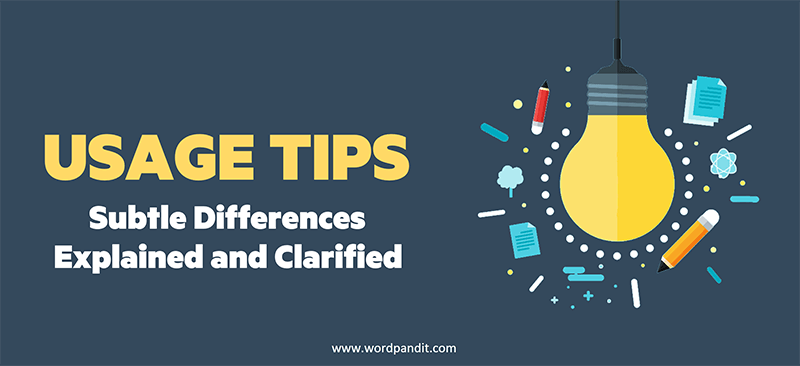Clarifying Confusing Word Pairs: Erotic vs. Erratic
Introduction
Ever found yourself mixing up erotic and erratic? You’re not alone! 🤯 These two words may sound similar, but their meanings couldn’t be more different. While one word might make you blush 😳, the other might just leave you scratching your head in confusion 🤔. Understanding the difference is crucial—one slip, and you could be saying something very different from what you intend. Let’s dive in and clear up the confusion, shall we? 🏊♂️
These two words are prime examples of why English can be so tricky! Words that sound similar often have vastly different meanings, and without understanding the distinctions, you could end up in an embarrassing situation. Imagine using erotic when you meant erratic—yikes! That kind of mistake could certainly lead to some awkward misunderstandings. So, let’s break down these two words in detail and help you feel confident using them correctly. By the end of this article, you’ll know exactly when to use erotic and when to use erratic, and you might even have a few laughs along the way. 😄
Detailed Explanation of Each Word
Erotic
- Definition: Relating to sexual desire or arousal.
- Pronunciation: ih-RAH-tik 🍆
- Etymology: Derived from the Greek word erōs, which means love or desire, often connected to passion. 💞 This origin gives erotic its strong association with romantic and passionate feelings. The Greek mythology behind Eros, the god of love, further emphasizes the word’s deep connection to sensuality and intimacy.
- Usage Examples:
- The novel contained many erotic scenes that were intended for mature readers. 📖 The author used these scenes to explore complex emotional relationships between the characters.
- The painting had an erotic quality that evoked a sense of intimacy. 🎨 The artist used warm colors and soft lines to convey a feeling of passion and closeness.
- Synonyms: Sensual, arousing, passionate. ❤️
- Antonyms: Chaste, modest, asexual. 🚫
Erratic
- Definition: Unpredictable, inconsistent, or lacking a fixed course.
- Pronunciation: ih-RAT-ik 💨
- Etymology: From the Latin word erraticus, meaning “wandering” or “straying.” It implies behavior or movement that is not regular or steady. 🚶♂️ The idea of wandering is central to understanding erratic—something that moves or changes without a clear direction or pattern.
- Usage Examples:
- His driving was erratic, causing other drivers to honk in frustration. 🚗💨 One moment he was speeding, the next he was slowing down unexpectedly.
- The company’s profits have been erratic over the past few years. 📉📈 One quarter they were up, the next they were down, with no clear pattern or stability.
- Synonyms: Unstable, unpredictable, inconsistent. ⚖️
- Antonyms: Consistent, predictable, steady. 📊
Comparison and Contrast
Let’s break it down: Erotic deals with passion and sexual desire 💋, whereas erratic is all about unpredictability or inconsistency. 🎢 They may sound similar, but the contexts in which they’re used are completely different. Imagine someone describing behavior as “erotic” when they meant “erratic”—definitely not the same thing! 😅 To avoid this mix-up, it’s helpful to focus on their root meanings: erotic relates to love ❤️, while erratic relates to wandering 🌀.
Think of it this way: erotic is about emotions and intimacy, often connected to romantic or passionate love. It can be used to describe something that stirs up feelings of attraction or arousal. On the other hand, erratic is about unpredictability—whether it’s someone’s mood, behavior, or even the path of a wandering animal. An erratic pattern lacks consistency and stability, while erotic emotions are deep and intense.
Contextual Usage
- The artist was known for both his erotic art 🎨💖 and his erratic work habits. He might spend weeks passionately creating a piece, then disappear for months without any explanation.
- She found his unpredictable, erratic schedule challenging 🗓️, but their relationship was far from erotic. His unpredictable hours made it hard to make plans, but there was no romantic connection between them.
Understanding these distinctions is key to using each word appropriately. The next time you describe someone’s behavior as erratic, make sure you’re not unintentionally suggesting something romantic or passionate! 😅
Mnemonic Devices
- Erotic has rot in it, which might remind you of “rotation” or movement—think about the passionate movement of romance. 💖 You can imagine a couple dancing in a slow, rotating movement to help you remember that erotic relates to love and desire.
- Erratic has rat in it, which you could associate with the idea of a rat running unpredictably. 🐀💨 Rats often move in unpredictable ways, which makes this a great way to remember that erratic means inconsistent or unpredictable.
Related Words
Other confusing word pairs you might be interested in:
- Affect vs. Effect ⚖️ These words are often mixed up, but one is a verb and the other is a noun.
- Imply vs. Infer 💬 One means to suggest, while the other means to conclude.
- Elicit vs. Illicit 🚨 One means to draw out a response, while the other refers to something illegal.
Learning these related word pairs can further help you improve your vocabulary and prevent common mistakes. Expanding your knowledge of these tricky pairs will make you a more confident writer and speaker. 📝✨
Conclusion
To sum it up, erotic relates to passion and desire ❤️, while erratic is about inconsistency and unpredictability. 🎢 Knowing the difference helps ensure you use the right word in the right context—and prevents any embarrassing mix-ups! 😳 Keep practicing, and you’ll master these tricky words in no time. 👊💪 Whether you’re writing a steamy romance novel or describing someone’s unpredictable driving, understanding the precise meaning of each word will make all the difference.
Language can be confusing, but it’s also what makes communication so fascinating. Every word has its own nuance, and mastering these subtleties allows you to express yourself clearly and effectively. So, keep learning, stay curious, and remember—language is a journey, not a destination! 🌍✍️
Test Your Knowledge: Erotic vs. Erratic Quiz
1. The book contained several scenes that could be described as ___.
2. Her behavior was increasingly ___, making it difficult to rely on her.
3. Erotic means unpredictable or lacking stability.
4. Which word is a synonym for Erotic?
5. The artist’s inspiration was both ___ and unpredictable.
6. The company’s profits were extremely ___, making financial planning difficult.
7. The writer’s inspiration was often ___, while his subject matter leaned towards the ___.
8. Which word comes from the Greek for love or desire?
9. The word “erratic” can be used to describe romantic passion.
10. The dancer’s movements were ___, sometimes graceful, sometimes unpredictable.













